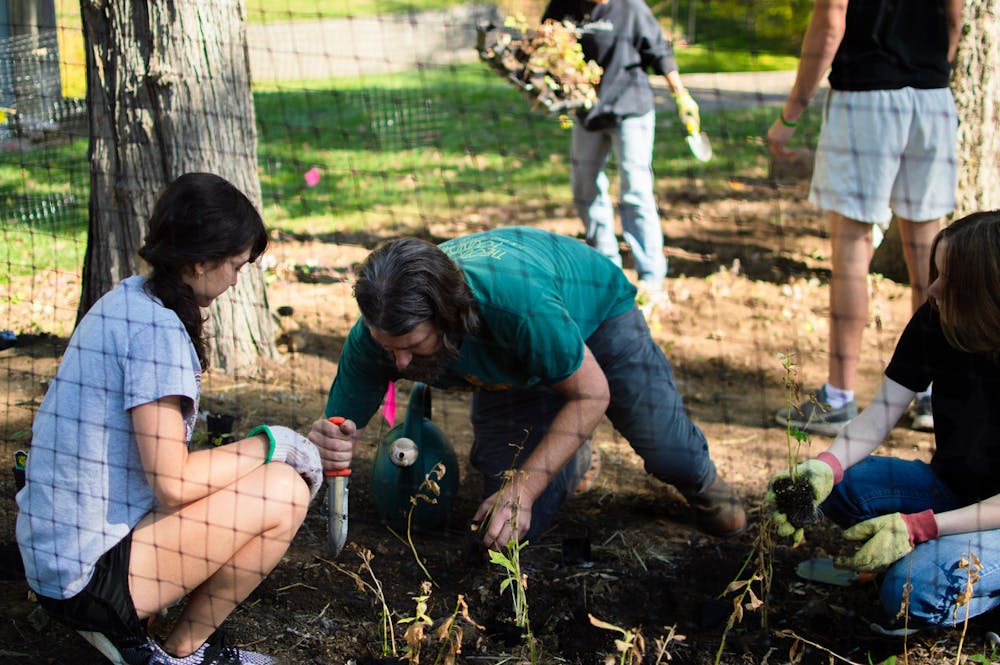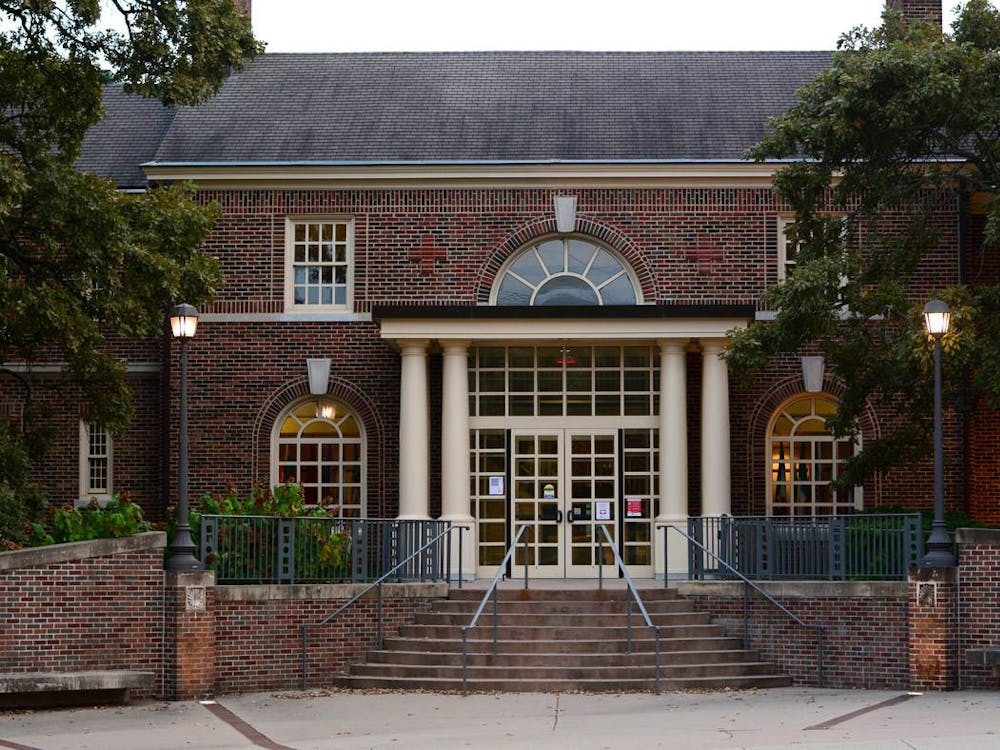Walking along Western College Drive toward Peabody Hall, a small path cuts across the lawn before reaching a small hollow of land up against Western Woods, the site of Miami’s Ernst Nature Theatre. The aroma of freshly turned dirt, fallen leaves and Domino’s pizza fills the air as students prepare to begin planting 2,000 individual plants.
A large delivery truck rumbles around the corner and pulls onto the lawn across the street. The hatch is opened to reveal trays upon trays of juvenile flowers, and the students who have arrived begin carrying them into the planting plot.
The first step toward revitalizing the Ernst Nature Theatre is underway.
With a recent and large donation from the Western College Alumnae Association to improve infrastructure at the nature theater, beautification of the site has become a priority. After applying for and receiving a grant from the National Wildlife Federation’s Garden for Wildlife program to use their plants at the site, Miami’s director of sustainability Olivia Herron got to work organizing the volunteering that would be needed to plant so many specimens.
“I am pleasantly surprised by the turnout,” Herron said as she gazed over the dozen or so students getting to work on the plot. “I just have not organized this kind of volunteer event here before so I'm just really excited.”
The volunteering took place over two days, Tuesday, Oct. 24, and Wednesday, Oct. 25, with students from many different clubs, majors and years descending onto Western Campus to help with the project.
The plot sits right next to the road snaking behind Peabody, overlooking the bleacher seating of the theater. While the infrastructure updates for Ernst intend to make the theater more accessible, the native pollinator plants serve to attract visitors for their aesthetics, among other reasons.
“The other thing, too, that I’d like to enhance is to put some little side markers that describe what kind of natives we've used,” said Daniel Acrocco, the project manager for this revitalization. “So people can come over here and basically start to think of it as a learning lab, in addition to a theater.”
Among the students volunteering on this project was Sean Bryson, a junior double majoring in biology and biochemistry, who viewed the plants as an upgrade to the ecosystem as well as an upgrade to the visuals of the theater.
“Once insects die off, then the birds go and then it's just an entire cascade,” Bryson said. “So having the native [plantlife] that we're putting in will allow native species to remain, and maintain the ecosystem in its entirety.”
With 12 different flowering species planted in the approximately 40-by-40-foot plot, the beautification provided by the plants and the cleanup of the previously unkempt space is sure to be viewed favorably by those who did not appreciate the theater before.
Enjoy what you're reading?
Signup for our newsletter
“I knew it was here because I lived on Western Campus my freshman year, but I've never really done anything, I've just walked by it,” said Elaina Winslow, a junior biochemistry major and food systems and studies co-major. “I think it's a good idea that [Acrocco’s] doing this because I think it's a space that could be used for a lot of things, but I don't think it's utilized.”
Surrounding the plot is a 4-foot-tall wire fence to keep wildlife out of the plot while plants take root. Due to the planting occurring later in the year, Herron does not anticipate much flowering to happen before the winter.
The fence will stay up throughout the winter and early spring as the plants go dormant and then begin to flower in the spring, when it will be removed. The timing will coincide closely with the official opening of the revitalized theater and the disbanding of the Western College Alumnae Association in June 2024.
After the event, the Ernst Nature Theatre will be available to reserve for events and as a conference place, while the native pollinator garden will be available for all to appreciate and enjoy. The other flowers included in the grant will be planted at the DeWitt Cabin bird blind, the Miami Apiculture Society beehives and other locations on Western Campus.
While only being part of a larger project, the native pollinator garden has much to offer by itself.
“Having native flowers visible allows you to educate yourself and others, just about what nature should look like and how we're working to get it that way,” Bryson said. “... I have a dog and I love to walk around. So it'd be really cool to just casually walk by and look at the flowers like yeah, I planted those.”




